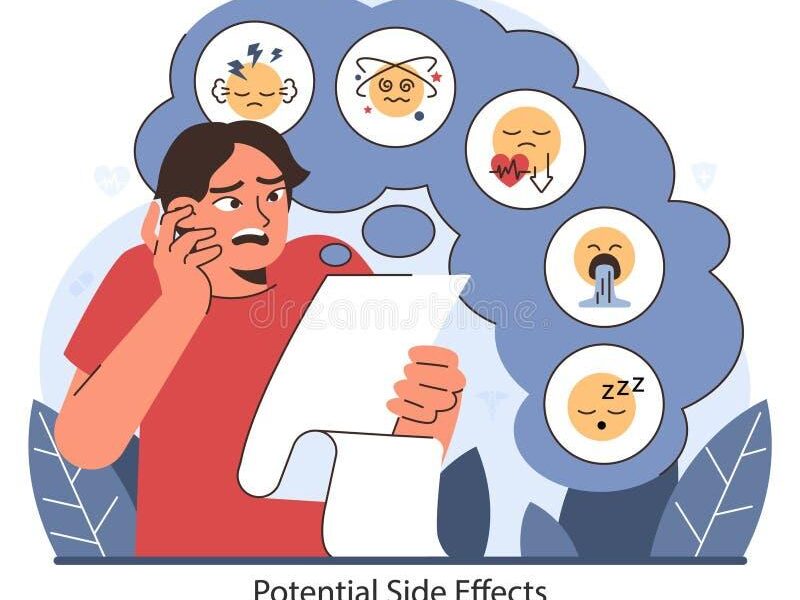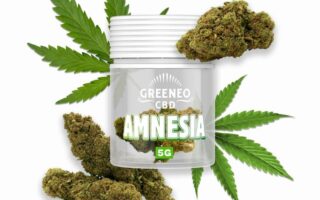In a world where the conversation surrounding cannabis has shifted dramatically from stigma to acceptance, tetrahydrocannabinol (THC) stands at the forefront as the compound responsible for the psychoactive effects that draw both curiosity and controversy. While many herald THC for its potential therapeutic benefits, a deeper dive into its impact reveals a more nuanced landscape. Beyond the euphoria and relaxation that users often seek lies a set of adverse effects that can quietly infiltrate everyday life. This article seeks to unravel the complexities surrounding THC, exploring its potentially detrimental impacts on mental, physical, and emotional well-being. As we navigate this intricate terrain, it is crucial to shine a light on the darker side of this celebrated substance, fostering a balanced understanding that can empower informed choices.
Table of Contents
- Understanding THC: Mechanisms of Action and Potential Risks
- Cognitive Impairments: Unraveling the Impact of THC on Brain Function
- Mental Health Considerations: THCs Role in Anxiety and Mood Disorders
- Harm Reduction Strategies: Navigating Responsible Use of THC Products
- Q&A
- To Conclude
Understanding THC: Mechanisms of Action and Potential Risks
Knowing how THC, or tetrahydrocannabinol, interacts with the human body can shed light on its effects and potential risks. THC primarily functions by binding to the brain’s cannabinoid receptors, primarily CB1 and CB2, which are part of the endocannabinoid system. This interaction can lead to various effects, from the euphoric sensation commonly associated with cannabis to alterations in perception and cognition. However, the very mechanisms that enable THC’s therapeutic benefits also carry the potential for adverse effects. Users might experience:
- Anxiety and Paranoia: Elevated THC levels can exacerbate feelings of anxiety or paranoia, particularly in inexperienced users or those predisposed to anxiety disorders.
- Cognitive Impairment: THC’s impact on memory and attention can hinder cognitive function, which might pose risks during tasks that require full concentration, such as driving.
- Increased Heart Rate: Many users report elevated heart rates, which could pose risks for individuals with pre-existing heart conditions.
- Dependency Risk: Regular use can lead to tolerance and, in some cases, dependence, raising the stakes for withdrawal symptoms upon cessation.
On a deeper level, understanding the potential risks associated with THC use involves recognizing the variation in individual responses. Factors such as genetics, mental health status, and even the method of consumption play significant roles in determining how THC affects a user. Some individuals may experience desirable effects, while others may encounter distressing symptoms. The following table illustrates some of the common adverse effects and their potential severity:
| Adverse Effect | Potential Severity |
|---|---|
| Anxiety | Moderate to High |
| Paranoia | High |
| Cognitive Decline | Moderate |
| Increased Heart Rate | Moderate |
| Dependency | High |
Cognitive Impairments: Unraveling the Impact of THC on Brain Function
The psychoactive compound in cannabis, THC (tetrahydrocannabinol), has been increasingly scrutinized for its effects on cognitive function. Users often seek the euphoric high associated with THC, yet the impact on brain function is complex and multifaceted. Research suggests that short-term use may lead to impairments in critical cognitive processes, including:
- Memory – Difficulty recalling information or forming new memories.
- Attention – Challenges in focusing and sustaining attention on tasks.
- Decision-Making – Impaired judgement and increased risk-taking behavior.
Moreover, chronic exposure to THC has raised concerns about longer-lasting cognitive deficits. Emerging evidence indicates a potential risk for issues such as decreased IQ levels and lasting memory impairment, particularly among adolescents whose brains are still developing. A recent study highlighted the following potential long-term effects:
| Effect | Potential Outcome |
|---|---|
| Reduced Cognitive Flexibility | Struggles with adapting to new situations. |
| Slowed Processing Speed | Longer response times in tasks requiring quick thought. |
| Impaired Learning | Challenges in acquiring new skills or knowledge. |
Mental Health Considerations: THCs Role in Anxiety and Mood Disorders
As research continues to unravel the complexities of THC and its impact on mental health, particularly in the realms of anxiety and mood disorders, it becomes evident that the cannabinoid has a dual nature. While many individuals report relief from anxiety symptoms and an elevation in mood when using THC, it’s crucial to understand that these effects can vary significantly from person to person. Among the adverse effects, some individuals may experience heightened anxiety levels, particularly with higher doses of THC. This paradoxical response can lead to feelings of paranoia or exacerbate existing mood disorders, highlighting the importance of careful dosage and strain selection.
Moreover, the relationship between THC and mental health is not only about the immediate effects but also about the long-term implications. Prolonged use of THC can alter brain chemistry, potentially worsening anxiety symptoms for some users. Research has suggested links between heavy THC consumption and the development of mental health issues, especially in individuals predisposed to anxiety disorders. To illustrate the nuanced effects of THC, consider the following table:
| Effect | Potential Outcome |
|---|---|
| Low Dose | May induce relaxation and reduce anxiety |
| High Dose | Can trigger panic attacks or increased anxiety |
| Long-term Use | Possible alteration in mood regulation |
| Individual Variation | Responses can range from relief to exacerbation of symptoms |
Given the complexity of these interactions, it is vital for individuals considering THC as an option for managing anxiety and mood disorders to consult with healthcare professionals, weigh the benefits against potential risks, and approach usage thoughtfully. Understanding these dynamics can empower users to make informed choices that align with their mental health needs.
Harm Reduction Strategies: Navigating Responsible Use of THC Products
As cannabis consumption gains popularity, it becomes increasingly important to adopt strategies that promote responsible usage, especially concerning THC products. One of the key components of harm reduction is to understand personal limits. It’s crucial to recognize how THC affects your body and mind, as individual reactions can vary significantly. To mitigate potential adverse effects, consider the following practices:
- Start with low doses: Begin with small amounts to gauge your body’s response.
- Choose the right environment: Use THC products in comfortable and safe settings to minimize anxiety.
- Stay hydrated: Drink plenty of water to help alleviate unwanted side effects such as dry mouth.
It’s also essential to maintain open communication with peers and health professionals about usage. Engaging in discussions about your experiences can lead to valuable insights and mutual support. Keep track of THC strains and their effects using a simple table format:
| Strain Name | Effects | Potential Side Effects |
|---|---|---|
| Blue Dream | Relaxation, Euphoria | Dry Mouth, Increased Heart Rate |
| Sour Diesel | Energy, Creativity | Anxiety, Paranoia |
| ACDC | Pain Relief, Calm | Fatigue, Dizziness |
Q&A
Q&A: Exploring the Adverse Effects of THC
Q: What is THC, and where is it commonly found?
A: THC, or tetrahydrocannabinol, is the primary psychoactive compound found in cannabis. It is primarily known for its role in creating the euphoric “high” associated with marijuana use. THC can be found in various forms, including dried flowers, oils, edibles, and concentrates, making it accessible for both medicinal and recreational use.
Q: What are some immediate adverse effects of THC consumption?
A: Upon consumption, THC can produce a range of immediate effects. Commonly reported adverse effects include increased heart rate, dry mouth, red eyes, and impaired short-term memory. Some users may also experience anxiety, paranoia, or a sense of disorientation, particularly if they are inexperienced or consume a high dosage.
Q: Are there long-term adverse effects associated with prolonged use of THC?
A: Yes, long-term use of THC can lead to several potential adverse effects. Studies suggest it may contribute to the development of cannabis use disorders, dependence, and withdrawal symptoms. Additionally, chronic users might face impaired cognitive function, affecting attention, learning, and memory, especially if use begins in adolescence when the brain is still developing.
Q: How does THC affect mental health?
A: THC has a complex relationship with mental health. For some individuals, especially those predisposed to mental health conditions, using THC can exacerbate symptoms or trigger issues such as anxiety, depression, or psychosis. However, the relationship is nuanced—some users report therapeutic benefits that help alleviate symptoms of anxiety or PTSD. Individual experiences can vary significantly.
Q: Can THC have adverse effects on physical health?
A: Yes, inhaling THC through smoking can pose risks to physical health. It can lead to respiratory issues, similar to those associated with tobacco smoking, including bronchitis or chronic cough. Additionally, there is concern over the potential cardiovascular risks associated with increased heart rate and blood pressure, particularly for those with pre-existing heart conditions.
Q: Are there different effects based on how THC is consumed?
A: Absolutely. The method of consumption can significantly influence the effects of THC. Smoking or vaping typically results in quicker onset and more intense effects compared to edibles, which take longer to kick in and can lead to unintentional overconsumption. Additionally, the potency and dosage of THC products can vary widely, further influencing the user experience and potential adverse effects.
Q: How can one mitigate the adverse effects of THC?
A: Mitigating adverse effects involves several strategies. Start with low doses and increase gradually to gauge tolerance. Ensuring a comfortable environment and being in the presence of trusted individuals may help alleviate anxiety or paranoia. Hydration can help with dry mouth, and avoiding high-THC products or combinations with other substances, like alcohol, can lessen unwanted side effects.
Q: Where can people learn more about the adverse effects of THC?
A: For anyone interested in learning more, reputable sources include medical journals, health organizations like the CDC or WHO, and books focused on cannabis research. Consulting with healthcare providers, particularly those knowledgeable about cannabis, can offer personalized insights and guidance regarding safe use and potential risks.
To Conclude
As we draw the curtain on our exploration of the adverse effects of THC, it’s essential to acknowledge the complexities of this compound. While THC holds a prominent place in the conversation surrounding medical and recreational cannabis, its impact is multifaceted, weaving through realms of mental health, cognitive function, and physical well-being.
In understanding these potential pitfalls, we empower ourselves to make informed decisions—balancing the allure of THC with a clear awareness of its risks. Whether you are a seasoned user, a curious newcomer, or simply seeking to navigate the evolving landscape of cannabis, the insights shared here aim to enlighten rather than deter.
As science continues to unravel the mysteries of THC, may we approach this potent compound with both caution and curiosity, ensuring that our choices are guided by knowledge rather than impulse. Stay informed, stay aware, and remember that every experience with THC is uniquely personal, shaped by individual biology, context, and choice. Thank you for joining us on this journey of discovery.



